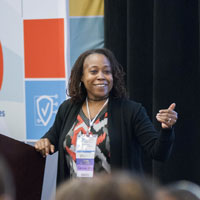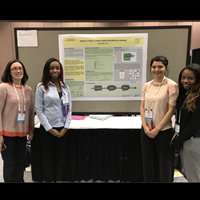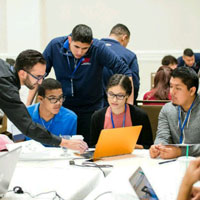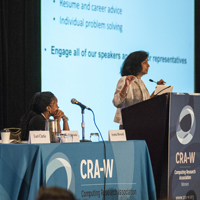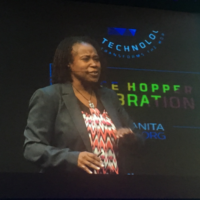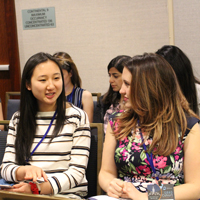
Expanding the Pipeline: 2018 CRA-W Grad Cohort for Women Inspires Attendees to Persist in Computing
On April 13-14, more than 400 women graduate students in computing from more than 150 institutions converged on San Francisco, CA, for the 2018 CRA-W Graduate Cohort for Women (CRA-W Grad Cohort). Throughout the two-day workshop, professional connections were made, new friendships were formed, and mentoring relationships with senior researchers were established. CRA-W organizes this workshop as part of its mission to increase the success and participation of women in computing research.



